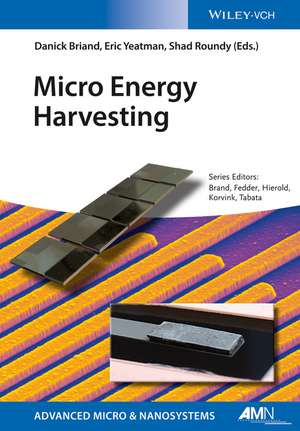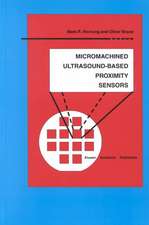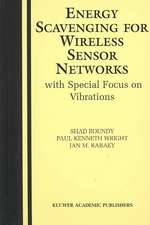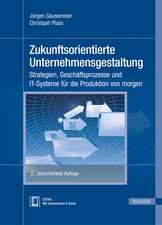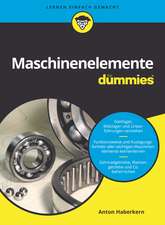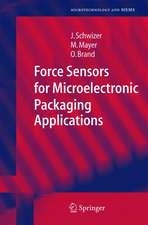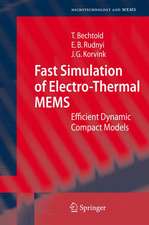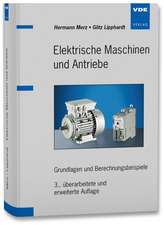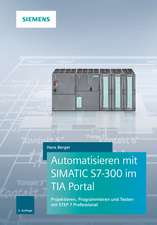Micro Energy Harvesting: Advanced Micro and Nanosystems
Autor D Brianden Limba Engleză Hardback – 21 apr 2015
Preț: 942.09 lei
Preț vechi: 1095.45 lei
-14% Nou
Puncte Express: 1413
Preț estimativ în valută:
180.27€ • 192.77$ • 150.30£
180.27€ • 192.77$ • 150.30£
Carte disponibilă
Livrare economică 28 martie-11 aprilie
Livrare express 13-19 martie pentru 54.78 lei
Preluare comenzi: 021 569.72.76
Specificații
ISBN-13: 9783527319022
ISBN-10: 3527319026
Pagini: 490
Ilustrații: 175 schwarz-weiße und 20 farbige Abbildungen
Dimensiuni: 180 x 247 x 29 mm
Greutate: 1.07 kg
Editura: Wiley Vch
Seria Advanced Micro and Nanosystems
Locul publicării:Weinheim, Germany
ISBN-10: 3527319026
Pagini: 490
Ilustrații: 175 schwarz-weiße und 20 farbige Abbildungen
Dimensiuni: 180 x 247 x 29 mm
Greutate: 1.07 kg
Editura: Wiley Vch
Seria Advanced Micro and Nanosystems
Locul publicării:Weinheim, Germany
Public țintă
Materials Scientists, Electrical Engineers, Semiconductor Industry, Physicists, Physical Chemists, Sensor Industry, LibrariesNotă biografică
Danick Briand obtained his PhD degree in the field of micro-chemical systems from the Institute of Microtechnology (IMT), University of Neuchâtel, Switzerland, in 2001. He is currently a team leader at EPFL IMT Samlab in the field of EnviroMEMS, Energy and Enviromental MEMS. He has been awarded the Eurosensors Fellowship in 2010. He has been author or co-author on more than 150 papers published in scientific journals and conference proceedings. He is a member of several scientific and technical conference committees in the field of sensors and MEMS, participating also in the organization of workshop and conferences. His research interests in the field of sensors and microsystems include environmental and energy MEMS. Eric M. Yeatman has been a member of academic staff in Imperial College London since 1989, and Professor of Micro-Engineering since 2005. He is Deputy Head of the Department of Electrical and Electronic Engineering, and has published more than 200 papers and patents, primarily on optical devices and materials, and micro-electro-mechanical systems (MEMS). He is a Fellow and Silver Medalist of the Royal Academy of Engineering, and a Fellow of the IEEE. Prof. Yeatman is also co-founder and director of Microsaic Systems plc, which develops and markets miniature mass spectrometers for portable chemical analysis. His current research interests are in energy sources for wireless devices (particularly energy harvesting), radio frequency and photonic MEMS devices, pervasive sensing and sensor networks. Shad Roundy received his PhD in Mechanical Engineering from the University of California, Berkeley in 2003. From there he moved to the Australian National University where he was a senior lecturer for 2 years. He spent the next several years working with startup companies LV Sensors and EcoHarvester developing MEMS pressure sensors, accelerometers, gyroscopes, and energy harvesting devices. He recently re-entered academia joining the mechanical engineering faculty at the University of Utah in 2012. Dr. Roundy is the recipient of the DoE Integrated Manufacturing Fellowship, the Intel Noyce Fellowship, and was named by MIT?s Technology Review as one of the world?s top 100 young innovators for 2004. His current research interests are in harvesting energy for wireless sensors, particularly from vibrations, acoustics, and human motion, and in MEMS inertial sensing.
